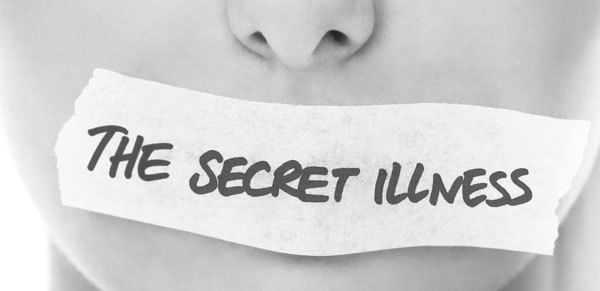Anorexia nervosa and bulimia nervosa are both serious eating disorders. They are psychiatric illnesses that affect more than five million Americans - and that's both men and women! If this figure doesn't startle you, then listen to this - thousands of these five million people will die from the physical problems resulting from these conditions. Eating disorders aren't limited to the extremes of anorexia and bulimia. They also include binge eating and dangerous fad dieting. In a culture where thin is in, nearly every American woman, man and child has suffered at one time or another from issues of weight, body shape and self-image.
What Is Anorexia?
Anorexia Nervosa is a disorder in which an individual becomes obsessed with dieting and thinness. This obsession leads to excessive weight loss. The anorexic's preoccupation with food and weight is distorted and results in severe self-loathing. Anorexics have an extremely warped body image - despite being extraordinarily thin, most see themselves as fat. They actually fear fat, even when they are painfully thin. There are many theories as to why and how people become anorexic. Some believe that anorexia masks other underlying psychological problems, such as lack of control. Sometimes when a person feels they have no control over their situation(s) (maybe school, family, work, etc.), they transfer the need for control into control over their body. Anorexics usually weigh 85 percent or less than what is expected for age and height. In addition to the obvious physical problem of extremely low weight, anorexics are often depressed, lonely and filled with feelings of shame about their physical appearance.

Anorexia Warning Signs
Check out the following, but keep in mind that these are only a few of the tell-tale signs of anorexia.
- Loss of a significant amount of weight.
- Continuing to diet although thin.
- Feeling fat, even after losing weight.
- Intense fear of weight gain.
- Loss of monthly menstrual periods.
- Preoccupation with food, calories, fat contents and nutrition. Also, categorizing foods into Good vs. Dangerous food groups.
Anorexia Can Kill
It's not just fashion - it's life and death. Anorexia can cause serious damage to your body. Take a look for yourself.
- Shrunken organs.
- Bone mineral loss, which can lead to osteoporosis (that means twisting up into a humpback like QuasiModo).
- Low body temperature.
- Low blood pressure.
- Slowed metabolism and reflexes.
- Irregular heartbeat, which can lead to cardiac arrest.
- Death.

Facts to Chew On
- More than five million men, women and children suffer from eating disorders.
- An estimated one thousand women die each year from anorexia nervosa.
- One percent of American teenage girls develop anorexia. Ten percent of them may die from it.
Writer's Story About Anorexia
When I was 14 years old, I became anorexic. I obsessed about my weight, thinking I was huge. I lost weight, not by dieting (at least not on purpose,) but by not eating. I couldn't handle eating in front of other people. I didn't want anyone to see me eat - weird, huh? I'd get up in the morning and eat nothing for breakfast. I started drinking a lot of coffee - black, because milk and sugar had too many calories for me to risk it. I'd drink coffee on my break and at lunch. After school, I would be so hungry I thought I was going to pass out, so I'd have a bowl of soup broth. That was it for the day. Come dinner time, I was full from the soup, so again, I ate nothing. I remember my parents freaking out, saying I was sick and that I would end up in the hospital. And I kept saying "What's the issue, I just want to lose weight. I'm so fat, I can afford to lose a few pounds." The truth is that despite looking in the mirror and seeing a fat girl, I was 40lbs under weight. I'm better now, although I did have one relapse when I went to college. If there is anything I can share with you it's this: your value as a person is not measured in pounds, or reflected in the mirror. It is the sum of your thoughts and actions, and the contributions you make (major or minor) to the world.
This article is dedicated to Joan.
- Click here for an overview on Bulimia Nervosa.
- Check out The National Eating Disorder Website for more information on eating disorders.
Have you suffered from an eating disorder? and we'll publish a collection of your experiences and thoughts on this subject.
Related Stories:
- A Body Image Reality Check
- Losing Weight the Wrong Way
- Eating Disorder Awareness Week
- More Health and Body Info!

































